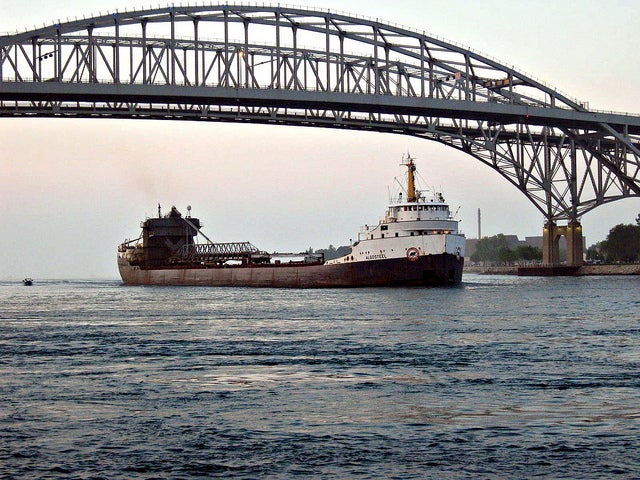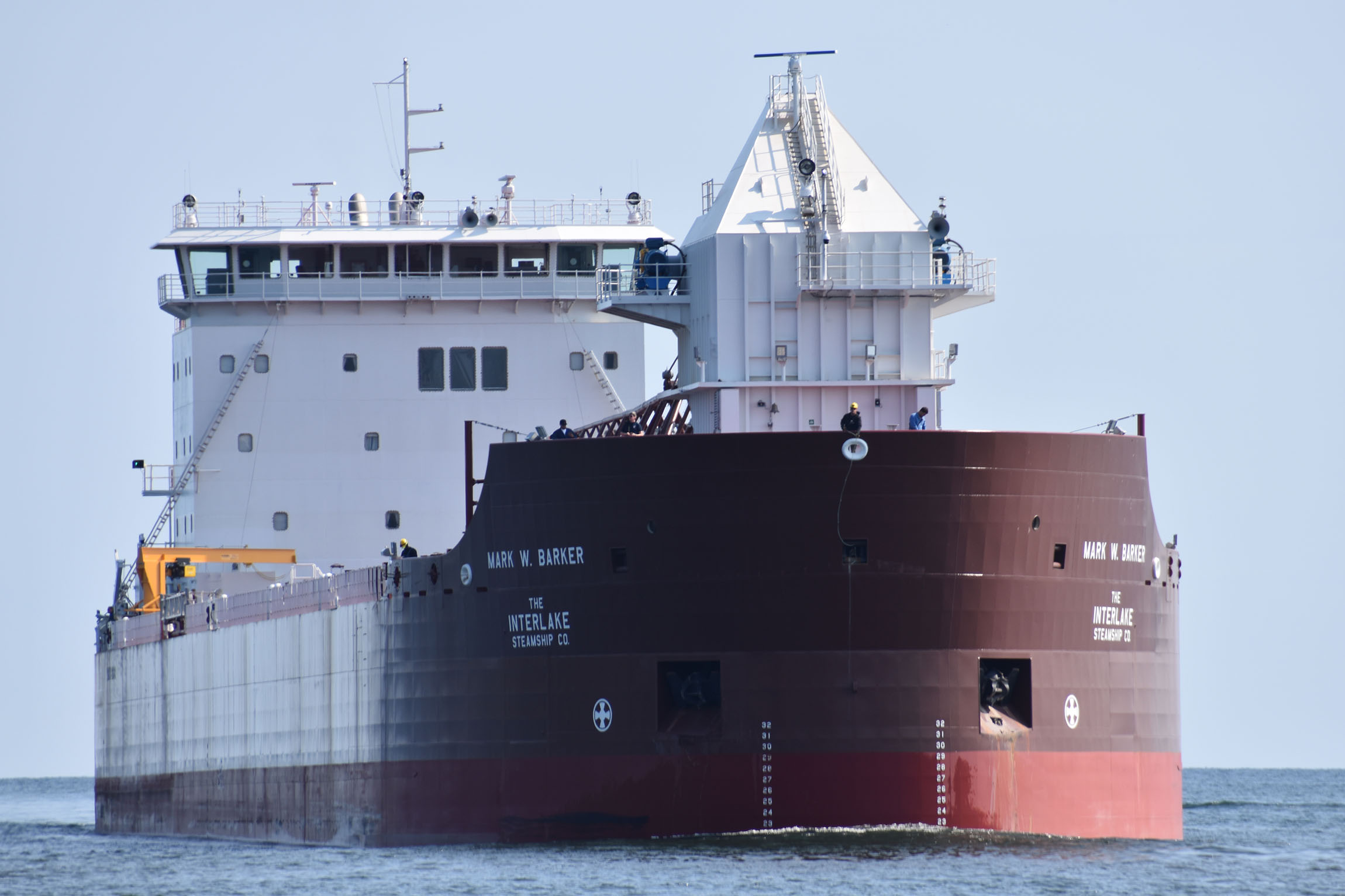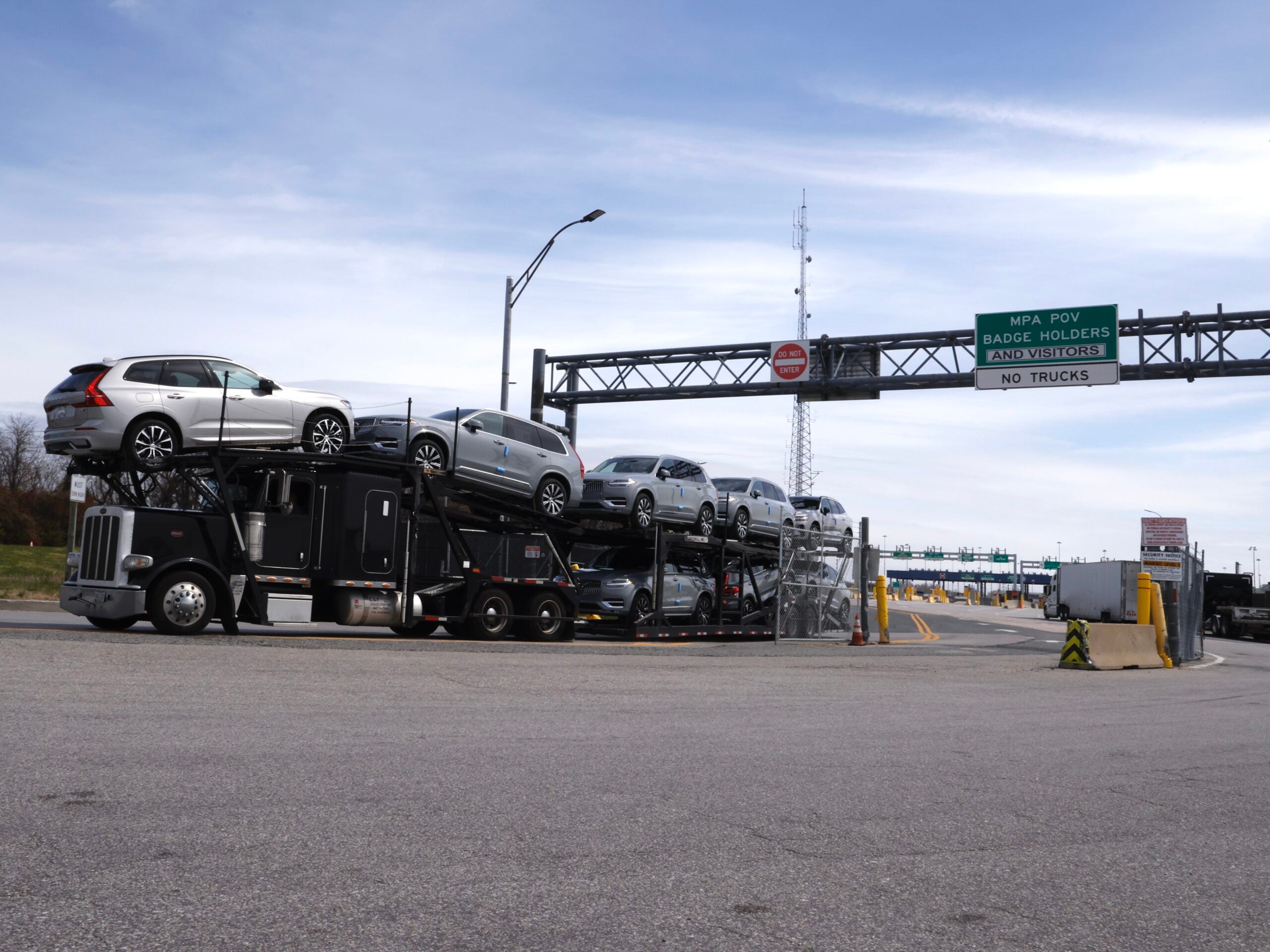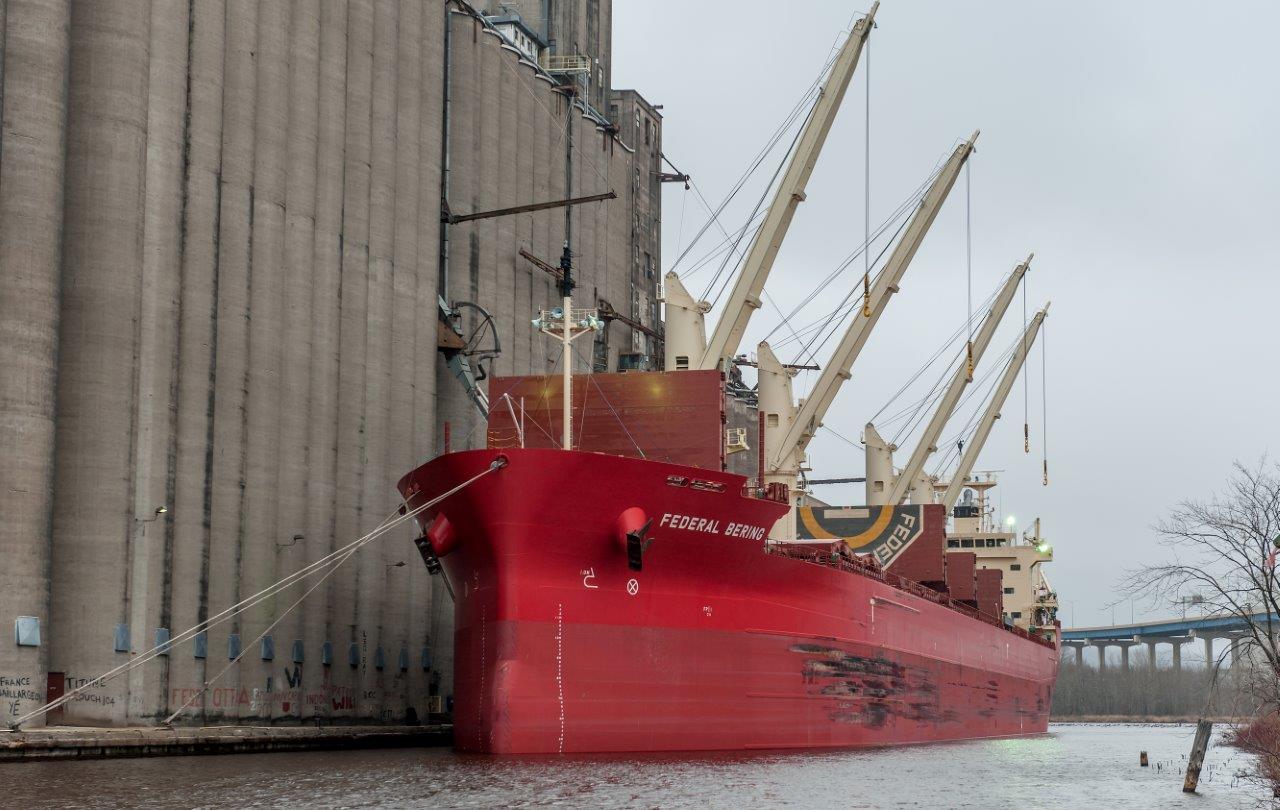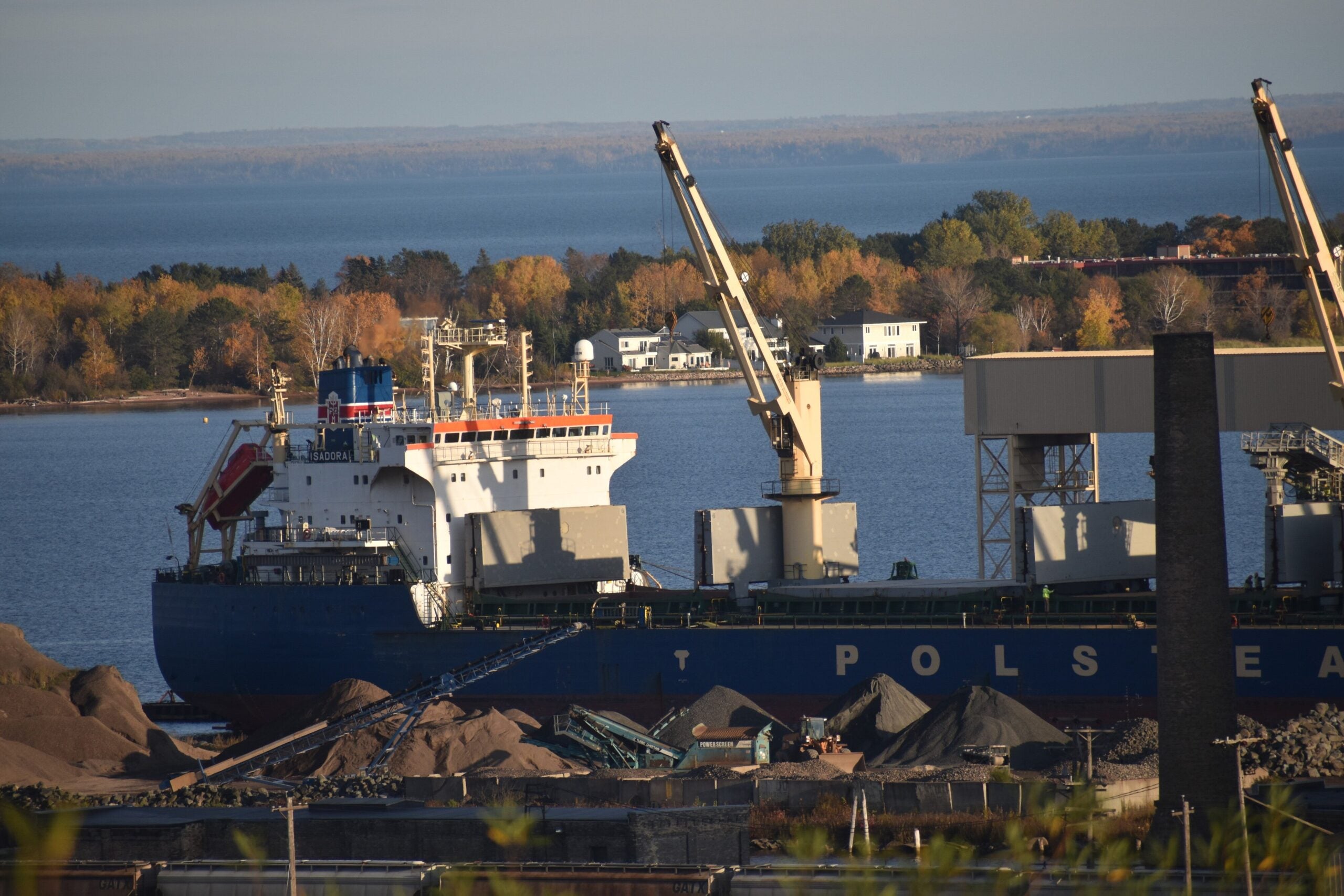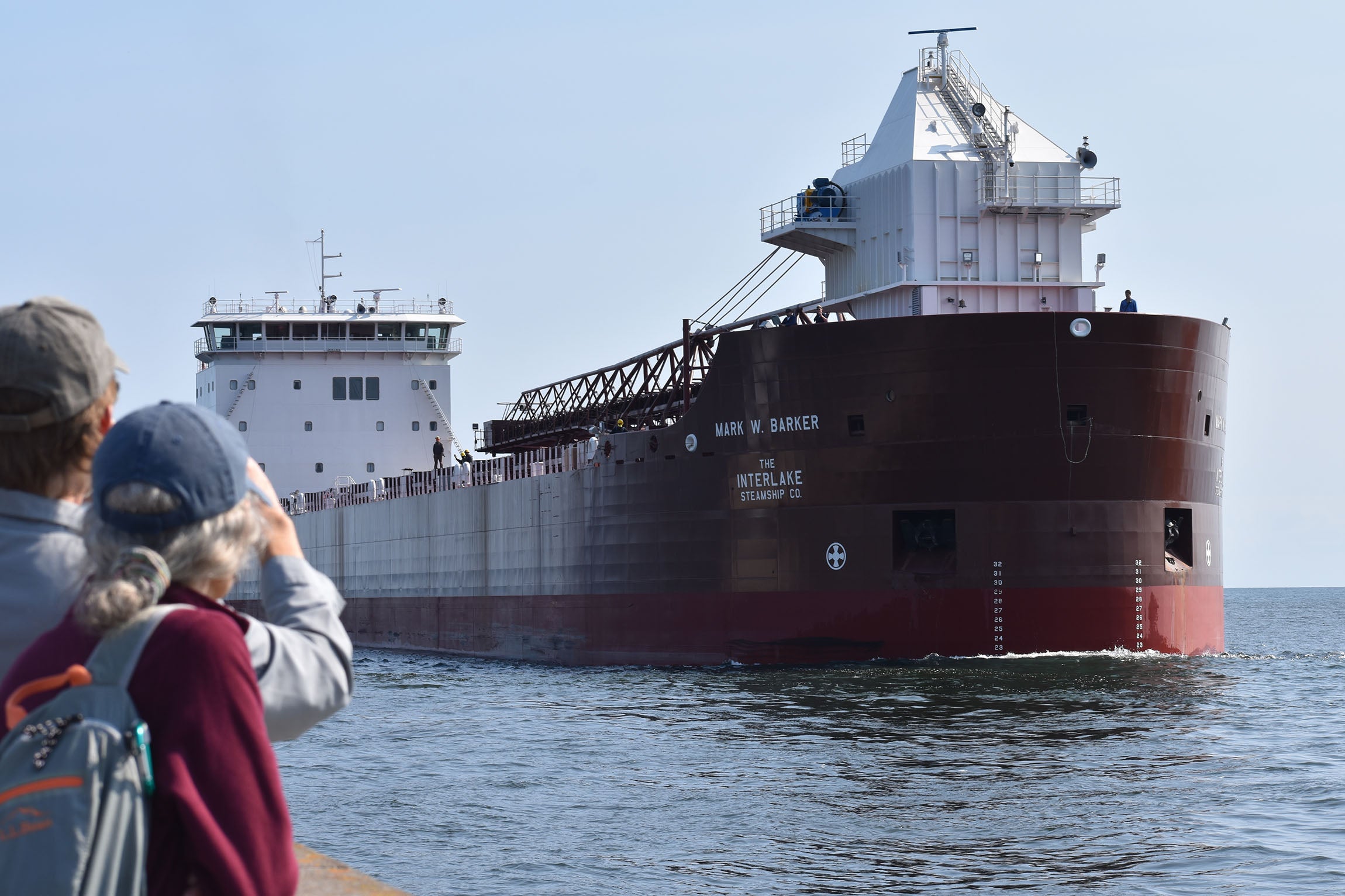July was the best month for U.S. freighters on the Great Lakes in two years, and St. Lawrence Seaway cargo tonnage has almost made up for the season’s crippling start when ships had to navigate miles of ice cover well into May.
U.S. Seaway Deputy Administrator Craig Middlebrook said the increase in foreign shipping makes the St. Lawrence Seaway a kind of “comeback kid”.
“To use a baseball analogy, we’re on a month-to-month winning streak here,” said Middlebrook. “July is pretty much a continuation of June, which makes it the third strong month in a row.”
Stay informed on the latest news
Sign up for WPR’s email newsletter.
Fifteen million tons of cargo was shipped from the Great Lakes through the Seaway to the Atlantic last month. Middlebrook said that puts them just 4 percent off last year’s numbers. He said while iron ore was down 37 percent, grain was up 55 percent and “general cargo” was up 61 percent in July — a category that includes “automobiles and other types of heavy manufactured consumer goods.”
Middlebrook said that such growth is “a real indication of the resiliency of the strength of the economy.”
U.S.-flagged ships toted 11 million tons of cargo in July, a figure that’s 10 percent higher than last July’s total.
Duluth-Superior Port Director Vanta Coda said they’re catching up from the ice fields of April and early May that nearly paralyzed shipping.
“It’s progress. We can’t make it all up overnight. It seems like the Seaway and the Great Lakes are doing some of that catching up,” said Coda.
Both Coda and Middlebrook say this month will be critical, as ports get busier in the push to increase stockpiles so businesses that use coal, iron ore and grain can stock up for the winter. They say a major x-factor is whether or not railroads can carry these commodities to ports with the additional demands of Bakken crude oil on their lines.
Correction: The original version of this story said the name of the U.S. Seaway deputy administrator was Craig Middleton. The administrator’s name is actually Craig Middlebrook.
Wisconsin Public Radio, © Copyright 2024, Board of Regents of the University of Wisconsin System and Wisconsin Educational Communications Board.

